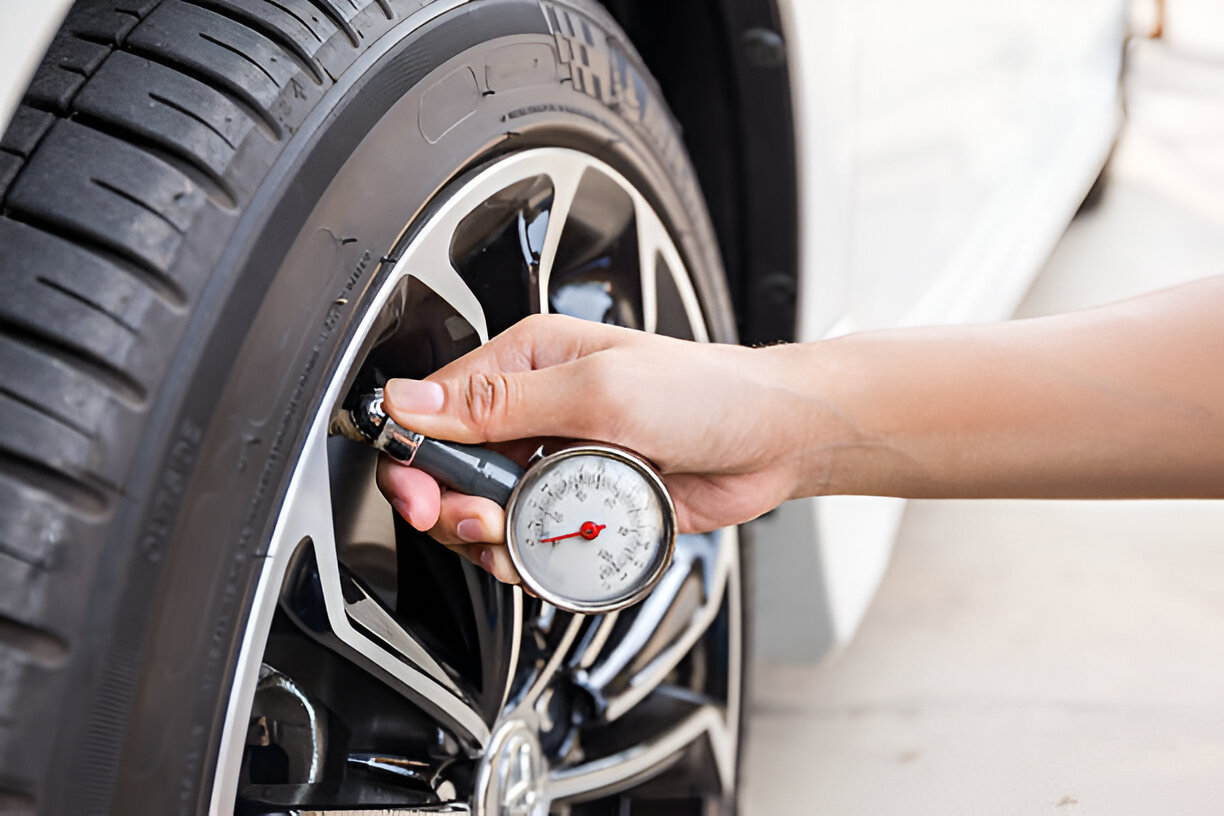Last Updated on July 19, 2025
Unveiling the Secrets of All-Weather Tires: Your Ultimate Guide
Is Your Car Prepared for Any Weather?
Let’s Discover All-Weather Tires!
If you’re a car enthusiast or a responsible car owner, you know that having the correct set of tires can make all the difference in your driving experience. All-weather tires have been gaining popularity lately for their versatility and performance, merging the benefits of both all-season and winter tires. This comprehensive guide will explore all-weather tires, how they work, and why they might be the ideal choice for your vehicle.
What Are All-Weather Tires?
Before diving into the advantages of all-weather tires, let’s clearly understand what they are. All-weather tires, or all-terrain tires, are designed to perform well in various weather conditions, from dry and hot summers to icy and snowy winters. Regardless of the season, they are engineered to provide excellent traction and handling.
The Technology Behind All-Weather Tires
All-weather tires are a remarkable feat of engineering, designed to excel in diverse weather conditions. Understanding the technology that powers these tires can help you appreciate their versatility and performance. Let’s delve into the intricate details of the technology behind all-weather tires.
1. Tread Compound
The heart of any tire’s performance lies in its tread compound. All-weather tires feature a specially formulated compound that balances the flexibility needed for winter conditions and the durability required for summer driving. This unique rubber blend ensures the tires remain pliable in cold temperatures while maintaining their integrity in the heat.
2. Tread Pattern
The tread pattern of all-weather tires is carefully designed to tackle various road conditions. It typically includes deep grooves and sipes that provide excellent traction on wet, snowy, and icy surfaces. The channels in the tread expel water and slush, reducing the risk of hydroplaning and enhancing grip.

3. Three-Peak Mountain Snowflake (3PMSF) Symbol
One of the key indicators of a true all-weather tire is the presence of the Three-Peak Mountain Snowflake (3PMSF) symbol on the sidewall. This symbol signifies that the tire has met specific criteria for winter performance, including traction on snow and ice. It’s a testament to the tire’s ability to handle harsh winter conditions.
4. Silica Technology
Many all-weather tires incorporate silica technology into their tread compound. Silica enhances grip on wet roads and improves overall traction. It also contributes to better fuel efficiency by reducing rolling resistance.
5. Reinforced Sidewalls
To ensure durability and stability, all-weather tires often feature reinforced sidewalls. This reinforcement provides extra protection against impacts and damage from road hazards.
6. Temperature-Activated Compounds
Some advanced all-weather tires come with temperature-activated compounds that adjust their grip based on the road temperature. When it’s cold, these compounds remain pliable, delivering better traction on icy surfaces. In warmer conditions, they provide the necessary firmness for confident handling.
Understanding these technological aspects of all-weather tires highlights their ability to perform optimally in varying climates and road conditions. Whether navigating through a slushy winter morning or cruising under the scorching summer sun, all-weather tires adapt to ensure your safety and comfort on the road.
Advantages of All-Weather Tires
All-weather tires are a driving innovation that promises many benefits for motorists. In this section, we’ll explore the remarkable advantages that make these tires stand out for those seeking safety, versatility, and cost-efficiency on the road. Discover how all-weather tires can redefine your driving experience and elevate your journey, regardless of the weather or terrain.
Year-Round Performance
All-weather tires are engineered to excel in various weather conditions, making them a top choice for year-round use. Unlike all-season tires, which might struggle in extreme winter conditions, all-weather tires maintain their grip on snow and ice, ensuring you’re prepared for whatever Mother Nature throws.
Cost-Efficiency
One of the most significant advantages of all-weather tires is cost-efficiency. Opting for all-weather tires eliminates investing in separate sets for summer and winter driving. This decision translates into substantial savings over time. You’ll no longer incur the expenses of purchasing, storing, and installing seasonal tires.
Convenience
All-weather tires provide the utmost convenience for drivers. Say goodbye to the hassle of changing tires with the changing seasons. Whether the temperature drops or the sun shines brightly, your all-weather tires are ready to perform optimally. This convenience saves you time and offers peace of mind, knowing that your tires are always up to the task.
Enhanced Safety
Safety on the road is paramount, and all-weather tires contribute significantly to your vehicle’s safety. They are designed to provide better control and shorter braking distances on slippery surfaces. Whether you encounter rain-slicked roads or icy patches, all-weather tires offer the traction and stability needed to navigate safely.
Versatility
All-weather tires are known for their versatility. They are equally at home on city streets and off-road terrain. Whether commuting to work, embarking on a weekend adventure, or tackling challenging road conditions, all-weather tires deliver the required reliability and performance.
In summary, all-weather tires offer a comprehensive package of benefits, making them an attractive choice for drivers. They combine year-round performance, cost-efficiency, convenience, enhanced safety, and versatility into a single-tire solution. With all-weather tires on your vehicle, you’ll be well-prepared to face any weather condition and enjoy a smooth, worry-free driving experience.

How to Choose the Right All-Weather Tires
Selecting the perfect set of all-weather tires for your vehicle is crucial. Consider factors like tire size, tread pattern, and your specific driving needs. Consult your vehicle’s manual for recommended tire sizes, and if you have any doubts, consult a professional tire expert.
Maintaining Your All-Weather Tires
Regular maintenance ensures optimal performance and longevity of your all-weather tires. Check the tire pressure, rotate them as recommended, and inspect for signs of wear and tear. Proper care will keep your tires in top shape and your driving experience safe.
Conclusion
In conclusion, all-weather tires are a remarkable choice for those seeking year-round performance and safety. They offer convenience, versatility, and cost-efficiency that traditional all-season tires can’t match. Make sure to choose the correct set for your vehicle, and with proper maintenance, you’ll enjoy a smooth and secure ride in any weather condition.
FAQs
Can all-weather tires be used year-round?
Yes, all-weather tires are specifically designed to be used year-round. They are engineered to perform well in various weather conditions, including dry and hot summers, rainy seasons, and even snowy or icy winter conditions. All-weather tires offer a balanced combination of features from both all-season and winter tires, making them suitable for continuous use throughout the year.
What is the purpose of all-weather tires?
The primary purpose of all-weather tires is to provide drivers with a single-tire solution that can handle various weather conditions. These tires are designed to offer good traction, handling, and control in multiple scenarios, including dry and wet roads, light snow, and slush. They aim to ensure driver safety, convenience, and performance in regions with diverse weather patterns.
What kind of driving are all-season tires suitable for?
All-season tires are well-suited for drivers who experience moderate weather conditions throughout the year. These tires are designed to handle dry and wet road surfaces efficiently. They balance performance, comfort, and longevity, making them suitable for everyday commuting, city driving, and highway cruising. However, they may not perform as well in extreme winter conditions as dedicated winter or all-weather tires.
Are all-weather tires good for summer?
Yes, all-weather tires are designed to perform well in the summer season. They are not only capable of handling warmer temperatures but also excel in wet conditions typically associated with summer rain. However, it’s important to note that while all-weather tires perform adequately in summer, they may not offer the same high-temperature performance as some dedicated summer tires designed for sports or high-performance vehicles. Therefore, reliable summer tires may be preferred for specialized summer driving needs like racing or extreme handling.
-
Automotive Specialist
-
Proofreader
-
Writer









